Tired of cleaning litter boxes? Believe it or not, your cat may be trained to use the toilet instead! While potty training your cat will take time and effort, it may be a handy and environmentally beneficial choice for pet owners. In this post, we’ll walk you through the process of how to train a cat to use the toilet and provide tips and strategies to help the procedure go as smoothly as possible.
What to Prepare Before Training a Cat to Use the Toilet?
Prepare a bathroom for your cat
The first step in cat potty training is providing its own bathroom. It means you need to choose which of the bathrooms in your house is the most convenient for your cat. And then, bring the litter box inside the bathroom and place it next to your toilet.
Understand how to create a training tray
To make the change from a litter box to a toilet, you’ll need to know how to make a training tray. It’s not hard to make your own training tray at home.
- To make a training tray from an aluminum roasting pan, just set it on top of the rim of the toilet. Put some duct tape on it to make sure it stays there.
- If the tray is not large enough to entirely cover the toilet bowl, use plastic wrap to fill up any remaining spaces.
Place the cat training seat over the toilet bowl
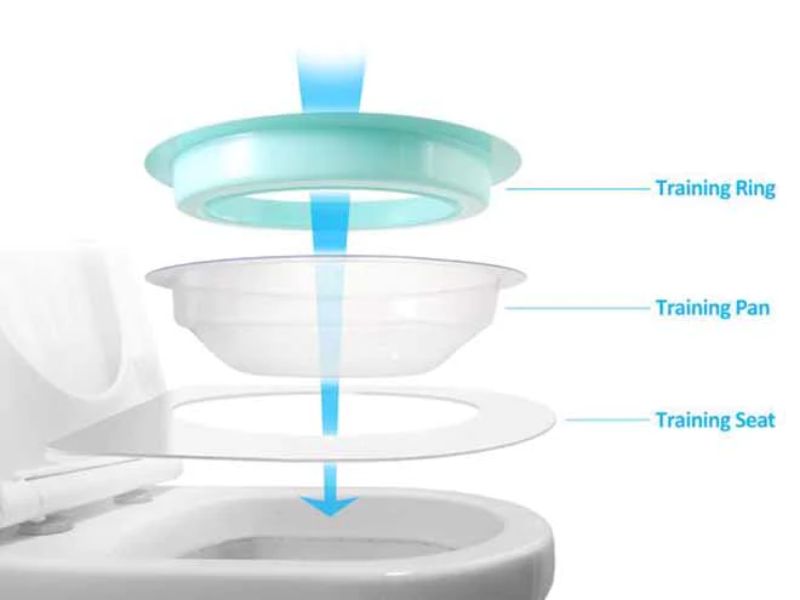
A cat training seat is a small contraption placed over the toilet bowl. You may either buy or create your own training seat to train a cat to use the toilet.
The flushable litter will be placed into a small hole in the middle of the gadget. To get your cat familiar with peeing and defecating directly into the toilet rather than litter, you’ll need to start by cutting wider and bigger holes in the training seat.
Train A Cat To Use The Toilet Step-by-step
Step 1: Move the Litter Box
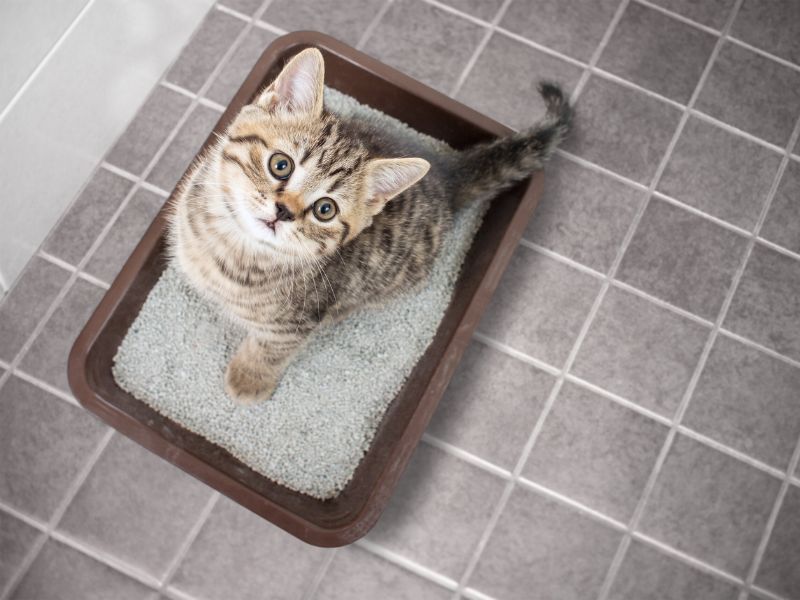
Bring the litter box into the bathroom you want your cat to use. Make sure to put the litter box down on the floor, not far from the bathroom toilet.
Step 2: Raise the Litter Box
Start by putting the litter box on a little higher shelf, and then proceed your way up until it’s at the same level as the toilet. Every time you lift the litter box, you’ll need to empty part of the litter. After the litter box has been raised to the same level as the toilet, it should be moved closer to the bowl by raises of an inch until it is parallel to the bowl.
Step 3: Training Toilet
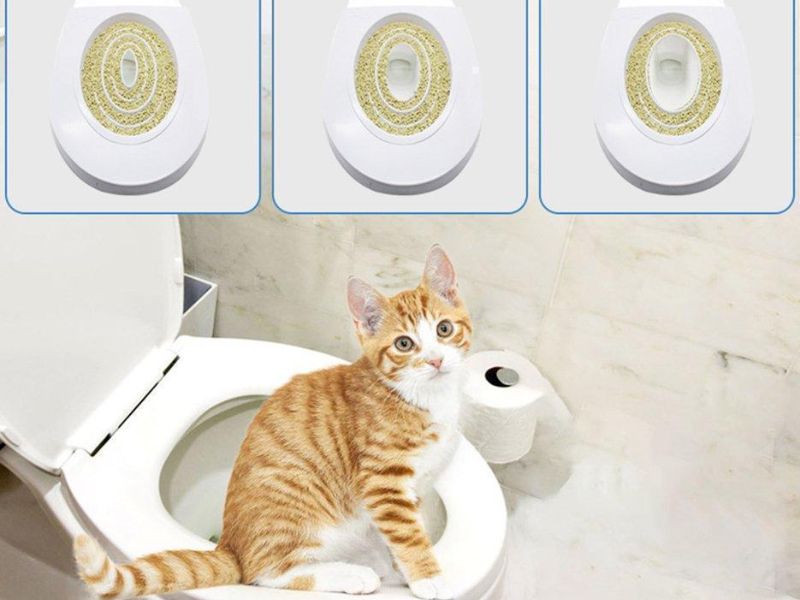
A “training box” perched high over the loo will be necessary for your feline friend. You may buy or create your own training box by covering a box with waxed paper and then placing flushable litter on top.
You may keep the waxed paper sticking over the toilet by trapping the edges with the seat. Always make sure the training box will withstand your cat’s weight.
Step 4: Cut Hole
Once your cat is used to using its training box, you may cut a tiny hole in the waxed paper. Make the hole bigger and bigger until you can see the whole toilet.
Step 5: Flush and Reward
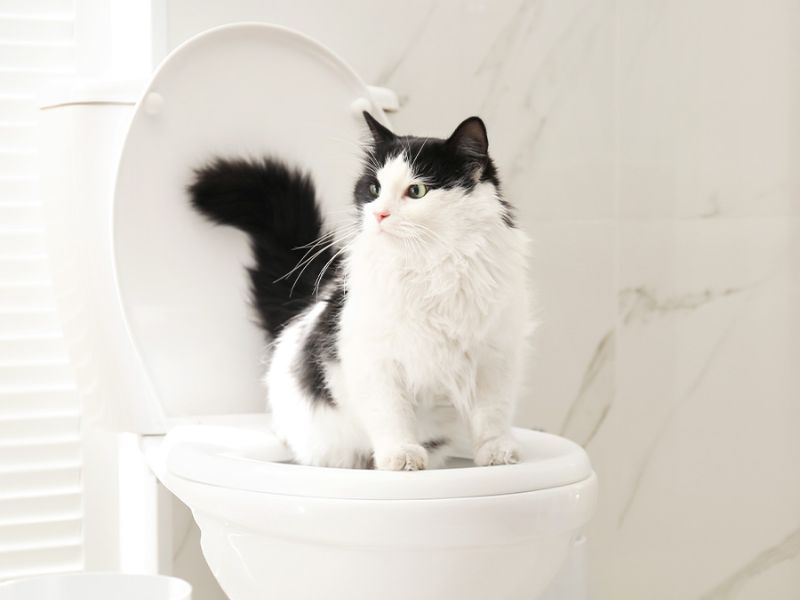
Use tasty rewards as motivation and reinforcement for excellent behavior. Don’t forget to flush the toilet after your cat uses it. She or he will remember and do the same after.
To successfully toilet-train your cat, you must thoroughly understand his or her needs and general health. Arthritis is a common problem in older cats, just as it is in humans and dogs. Because it may be unpleasant for an arthritic cat to jump onto and/or straddle a toilet, you may need to relocate the litter box to the floor as your cat ages.
The whole process of cat potty training should take around six weeks.
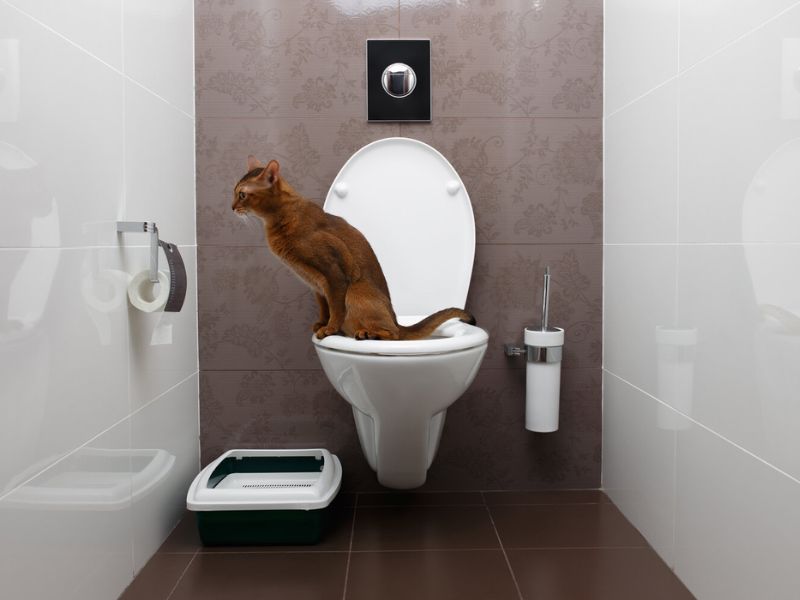
Please keep in mind that not all cats can be successfully potty trained. If your cat is becoming dissatisfied or resisting the training, you should stop the practice and shift to using a traditional litter box.
>>> Further reading: Top 10 Helpful & Crucial Kitten Training Tips For Beginners
Tips when Cat Potty Training
While your cat attempts to use the toilet training seat, keep an eye on him or her. Modifications might be necessary. Problems arise when a cat’s weight causes the seat to sag or when the cat jumps off the seat during training. Have a few wet wipes, a dustpan, and a brush handy to protect against either scenario.
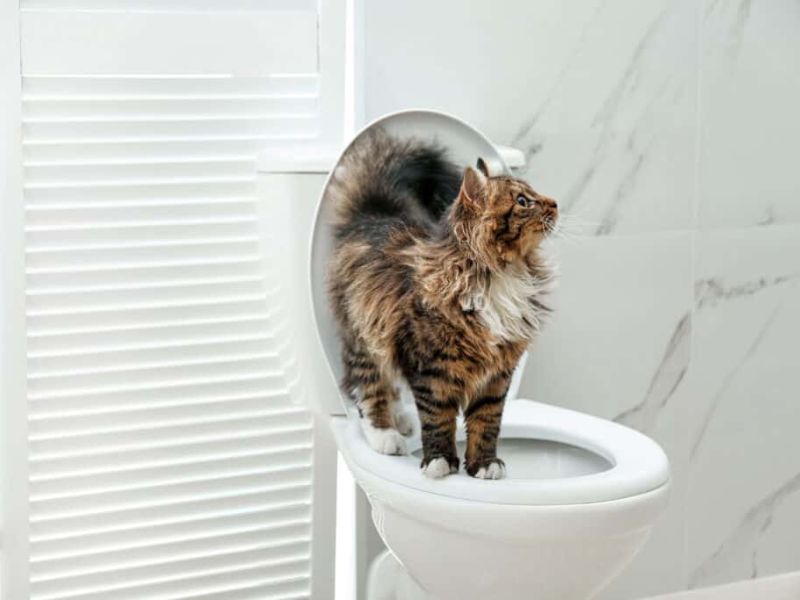
Cats aren’t as responsive to or tolerant of training compared to dogs. You shouldn’t teach your cat more than twice a day; each session shouldn’t last more than 5 minutes if you want to see progress. And remember, never strike your cat, shout at your cat, or make the experience unpleasant in any other way. Your cat will not like any of these things.
Within a month, with some patience and luck, your cat should start utilizing the bathroom there for urination and defecation.
>>> Read more:
- How to Train a Cat to Stay Off Counters with the 6 Easiest Methods?
- How to Leash Train a Cat in 5 Brilliant Steps?
How to train a cat to use the toilet is a difficult task, but with patience and persistence, it can be a rewarding experience for both you and your feline companion. Remember to take things slowly, utilize positive reinforcement, and be consistent with your training. With time and practice, your cat will soon be using the toilet like a pro, and you will enjoy a cleaner and more convenient house. So, skip the litter box and give potty training a go; you may be amazed at its effectiveness!










